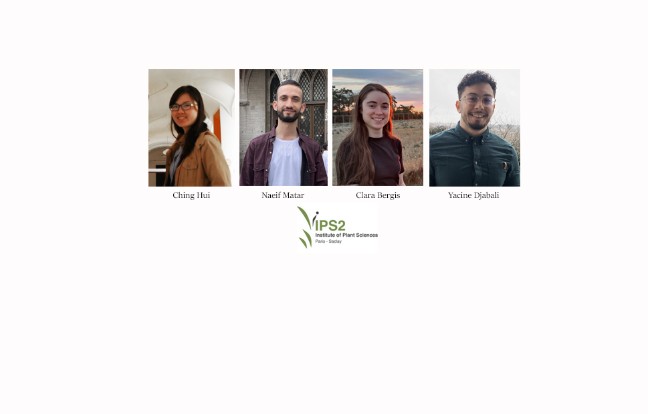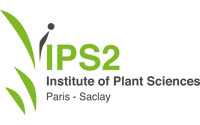theses winter 2023
Ching-Hui CHUNG
Study of the processes controlling fruit set in melon
Keywords: Cucumis melo, fruit set, parthenocarpy, TILLING, RNA-seq
The decline of pollinators and global warming is a threat to flower fertilization, thereby compromising fruit production. Parthenocarpy, which allows fruit development independently of fertilization, could offer a solution to this problem. Cucumis melo, one of the most consumed fruit species in the world, is impacted by the reduction of pollinators and climate change, which affects fruit set. The objective of my thesis was to examine the cellular and molecular processes linked to melon fruit set. By performing comparative analyses of the transcriptomes of pollinated flowers and of flowers developing into fruit in the absence of fertilization, we succeeded in identifying genes associated with fruit set. The genetic analysis of the identified candidate genes revealed potential regulators of fruit set in melon. These discoveries offer encouraging prospects for improving the fruiting process in all Cucurbitaceae.
PhD defense: December 14, 2023
PhD co-supervisors: Dr. A. Boualem and Dr. A. Bendahmane
---------------
Naeif MATAR
Genetic diversity and determinism of the response of wheat to beneficial microorganisms belonging to the genus Trichoderma.
Keywords: Triticum, Trichoderma spp., Endophytes, Indole-3-acetic acid, Yield, Puccinia striiformis
Wheat is one of the most important crops in the world. Wheat production can be affected by beneficial and pathogenic rhizospheric microbes. Amongst them, beneficial Trichoderma spp. can be used as alternatives to chemical fertilizers, as they are cheap and harmless to the environment. Our study aimed to isolate, identify, and characterize Trichoderma spp. strains from Lebanon that are associated with wheat. Two Trichoderma strains (T. afroharzianum, and T. guizhouense) were isolated and found to be endophytes enhancing plant growth and yield in different wheat lines. These two Trichoderma isolates have the ability to inhibit the development of the Puccinia striiformis pathogen. These Trichoderma spp. have thus the potential to be used as organic fertilizers for wheat.
PhD defense: November 22, 2023
PhD co-supervisors: Dr. P. Ratet, Pr. F. As-Sadi and Dr. N. El Bostany
------------------------------------------------------
Clara BERGIS SER
Identification of new players in the plant DNA Damage Response
Keywords: Damage, DNA, Players, Response
Plants are constantly subjected to genotoxic stresses, which can lead to DNA damage. One of such stress is the replicative stress, which is induced whenreplication forks are blocked. Several mechanisms are used to respond to this stress: some limit DNA damages or repair DNA rapidly, while others signal it, triggering a cascade of responses leading to the repair or to the elimination of damaged cells. My thesis dealt with these two types of mechanisms. We have shown that polymerases θ and the LUMINIDEPENDENS protein limit the formation of damages linked to the replicative stress by preventing it or repairing it rapidly. We have also shown that E2F proteins are able to regulate the expression of DNA damage response genes, enabling the cell to respond to a replicative stress.
PhD defense: December 13, 2023
PhD supervisor: Dr. C. Raynaud
-----------------------------------
Yacine DJABALI
Harnessing multi-omics data to unravel the genetic and molecular basis of complex traits in the context of the maize drought response
Keywords: systems biology, genome-wide association study, multi-omics data integration, molecular networks, genotype-phenotype relationship, genotype-by-environment interaction
Maize is at the center of research aiming at improving varieties to make them more resistant to water stress. However, drought tolerance is a polygenic trait that is highly dependent on the environment, making understanding its genetic determinism a major challenge. Thanks to advances in biotechnologies, it is possible to generate multi-omics datasets that can be used to apply systems approaches. In this thesis, I applied a systems genetic approach by integrating genomic, proteomic, and phenomic data to i) infer a multiscale network revealing the genetic and molecular basis of the response to water stress, ii) evaluate the contribution of proteomic data in explaining the variance of the genotype x water availability (GxW) interaction, and iii) provide a functional annotation of QTLs that maximize the proportion of the GxW variance captured.
PhD defense: December 13, 2023
PhD co-supervisors: Dr. M. Blein-Nicolas and Dr. M-L. Martin

16/01/2024
